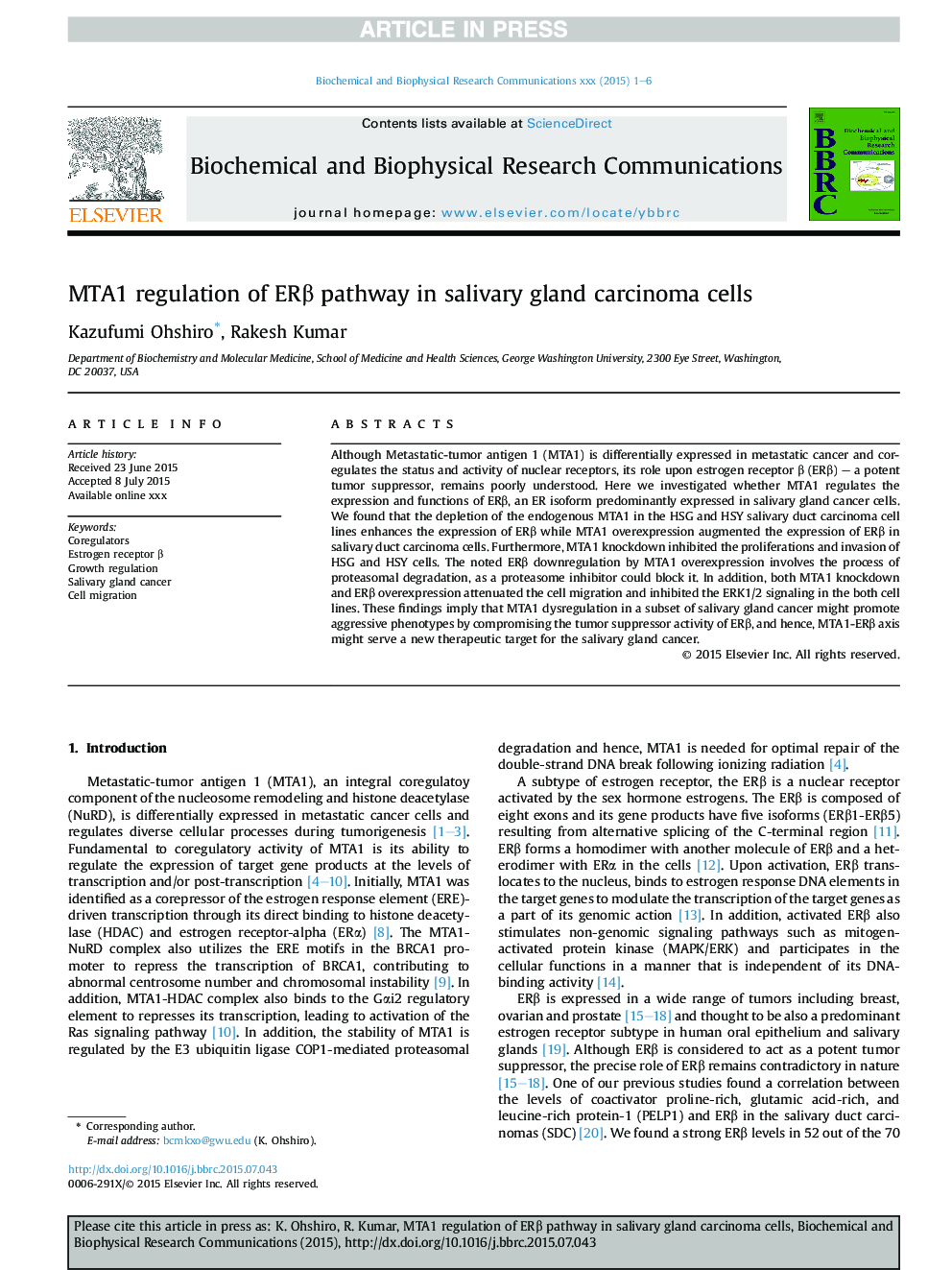| Article ID | Journal | Published Year | Pages | File Type |
|---|---|---|---|---|
| 10749832 | Biochemical and Biophysical Research Communications | 2015 | 6 Pages |
Abstract
Although Metastatic-tumor antigen 1 (MTA1) is differentially expressed in metastatic cancer and coregulates the status and activity of nuclear receptors, its role upon estrogen receptor β (ERβ) - a potent tumor suppressor, remains poorly understood. Here we investigated whether MTA1 regulates the expression and functions of ERβ, an ER isoform predominantly expressed in salivary gland cancer cells. We found that the depletion of the endogenous MTA1 in the HSG and HSY salivary duct carcinoma cell lines enhances the expression of ERβ while MTA1 overexpression augmented the expression of ERβ in salivary duct carcinoma cells. Furthermore, MTA1 knockdown inhibited the proliferations and invasion of HSG and HSY cells. The noted ERβ downregulation by MTA1 overexpression involves the process of proteasomal degradation, as a proteasome inhibitor could block it. In addition, both MTA1 knockdown and ERβ overexpression attenuated the cell migration and inhibited the ERK1/2 signaling in the both cell lines. These findings imply that MTA1 dysregulation in a subset of salivary gland cancer might promote aggressive phenotypes by compromising the tumor suppressor activity of ERβ, and hence, MTA1-ERβ axis might serve a new therapeutic target for the salivary gland cancer.
Related Topics
Life Sciences
Biochemistry, Genetics and Molecular Biology
Biochemistry
Authors
Kazufumi Ohshiro, Rakesh Kumar,
